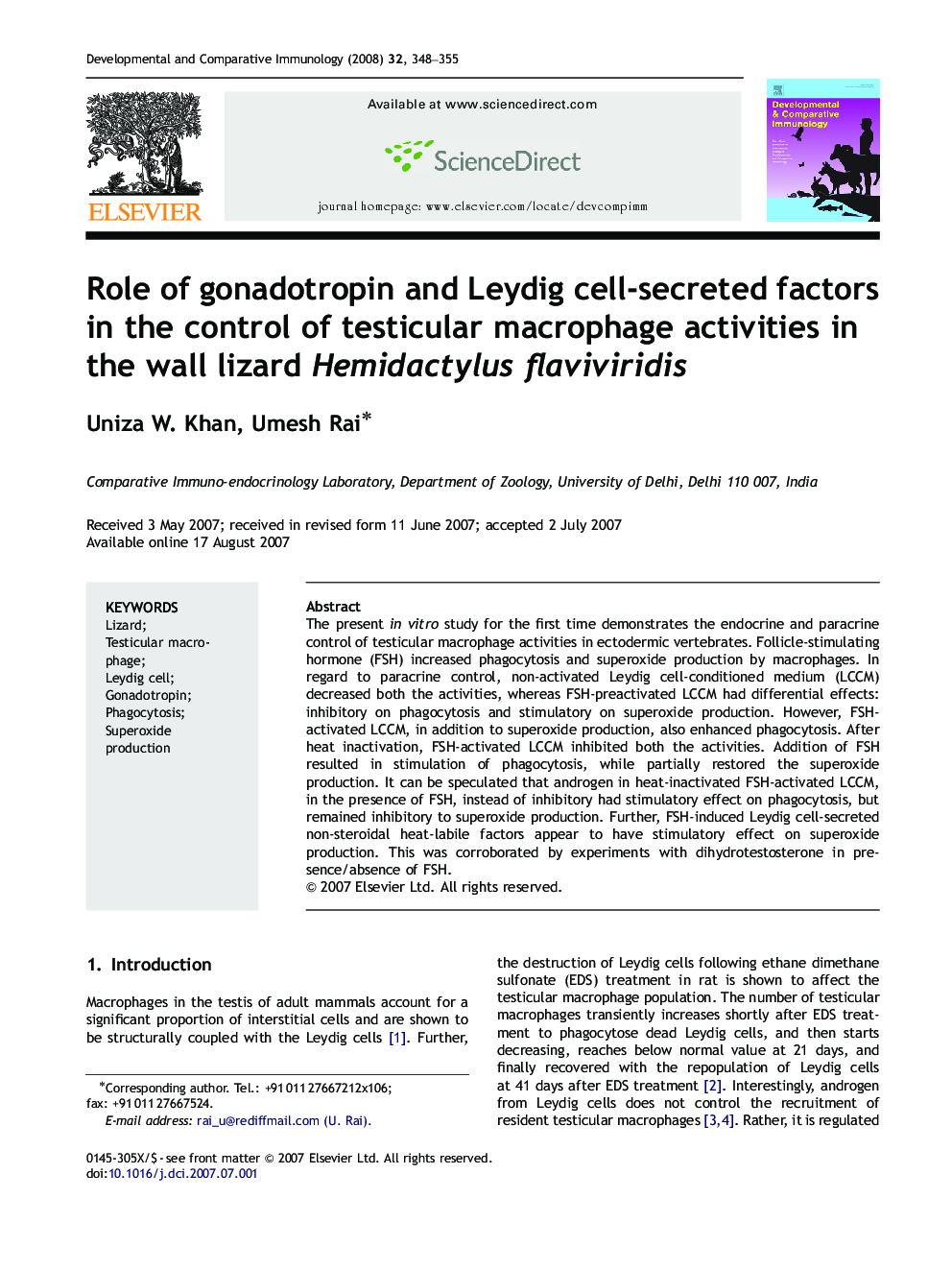| Article ID | Journal | Published Year | Pages | File Type |
|---|---|---|---|---|
| 10971746 | Developmental & Comparative Immunology | 2008 | 8 Pages |
Abstract
The present in vitro study for the first time demonstrates the endocrine and paracrine control of testicular macrophage activities in ectodermic vertebrates. Follicle-stimulating hormone (FSH) increased phagocytosis and superoxide production by macrophages. In regard to paracrine control, non-activated Leydig cell-conditioned medium (LCCM) decreased both the activities, whereas FSH-preactivated LCCM had differential effects: inhibitory on phagocytosis and stimulatory on superoxide production. However, FSH-activated LCCM, in addition to superoxide production, also enhanced phagocytosis. After heat inactivation, FSH-activated LCCM inhibited both the activities. Addition of FSH resulted in stimulation of phagocytosis, while partially restored the superoxide production. It can be speculated that androgen in heat-inactivated FSH-activated LCCM, in the presence of FSH, instead of inhibitory had stimulatory effect on phagocytosis, but remained inhibitory to superoxide production. Further, FSH-induced Leydig cell-secreted non-steroidal heat-labile factors appear to have stimulatory effect on superoxide production. This was corroborated by experiments with dihydrotestosterone in presence/absence of FSH.
Related Topics
Life Sciences
Biochemistry, Genetics and Molecular Biology
Developmental Biology
Authors
Uniza W. Khan, Umesh Rai,
